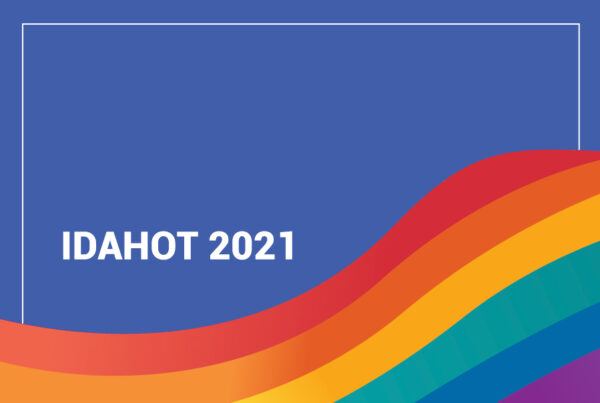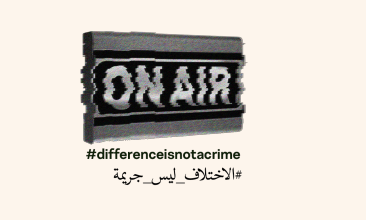Since the outbreak of the Corona-virus (COVID-19), many studies have been carried out to identify the level of vulnerability and risk that different populations might be subject to, more specifically those related to transmission of the virus, illness severity and recovery. Despite the many unanswered questions to date, studies have confirmed that older people, people with weak immunities and people with comorbidities seem to be more vulnerable than others.
Regarding the vulnerability of the LGBTIQ communities and the risk of contracting Coronavirus, no evident data that LGBTIQ communities are at high risk has been proven up to now. However, it is assumed that, being vulnerable communities, LGBTQ communities are more at risk of contracting COVID-19, and for several different reasons including the following:
Respiratory immunity: COVID-19 is a virus that attacks the respiratory system. It is confirmed that people with fragile lung immunity are at a higher risk of developing severe symptoms, which means that people who smoke, or have other respiratory issues are at higher risk. LGBTIQ individuals are more likely to smoke than the general population making them at more opportunistic risks.
Pre-existing illnesses: Regardless of the Corona-virus risks, gay men and Transwomen are at higher risk of contracting HIV. Many of them are living with HIV, and many others might not know they are carriers of the virus. At the moment, People Living with HIV (PLHIV) with achieved viral suppression are at a normal risk of developing severe symptoms if contracted COVID-19; but people with a threatened immunity might be at a higher risk, including those who don’t know they are living with HIV. In addition, LGBTIQ are also at a higher risk of having a Sexually Transmitted Infection (STI), which makes individuals currently dealing with an STI more likely to have a weak immunity and consequently be at higher risk of developing severe symptoms if they contract COVID-19.
Living conditions: The living conditions of many LGBTQ in different parts of the world are not at their best. While many of them struggle to meet daily needs, the Corona-virus happened to set a new challenge: Prevention. To protect oneself and others around, people should wash their hands regularly, wear protective gear and stay at home. However, staying at home is not very easy for individuals who need to store food and medicines; it becomes harder when individuals are at home without the possibility of working or having a source of income. This makes LGBTQ individuals less capable of taking preventive measures as advised by health systems.
Access to healthcare: It is no surprise to anyone that LGBTIQ people have always faced difficulties in accessing healthcare. Gender identity and sexual orientation have been used as an argument to deny care and treatment to LGBTIQ communities and to discriminate against them in many healthcare settings. This can be alarming knowing that people from LGBTIQ communities would face similar obstacles when accessing healthcare or treatment against COVID-19.
Homelessness and sex work: It is public knowledge that the world has not been fair with people from LGBTIQ communities, and many of them have experienced inequality and discrimination firsthand. For LGBTIQ individuals who are away from their homes or living on the streets, these times are very risky times; adding to that the vulnerability of people who can only live off paid sex, the Corona-virus does not only come at high risk; the home isolation is a large obstacle in making ends meet for many.
What are the best measures we can take to support one another during this pandemic?
- Follow to your best ability the instructions around prevention from COVID-19, and that means wash your hands with soap and water thoroughly (regular soap works as good as any other product); practice social distancing and avoid transportation or unnecessary out-of-the-house commutes.
- Check on your friends, contacts and those in your community who you think might be vulnerable. Ask them if they need anything and if you can do anything to provide some support?
- Donate! Whether it is for health efforts and initiatives in your country or even to people around you. Ask your friends, find out who needs support during this time and help. You can donate groceries, house cleaning products or even Corona-virus preventative kits, soaps and sanitizers.
- Contact your local or regional organizations to know how they are affected and what kind of support they are offering or in need of at this time.
- Reduce stigma and discrimination. If we have learned anything from the HIV epidemic is that stigma is as harmful as the virus. Do not stigmatize or discriminate against people who contract the virus and people who are unable to commit to healthy standards. Remember that not everyone has the same abilities or privileges as you.
- Do not share false information. We are surrounded by fake news, especially those published featuring people who claim to have found treatments for Corona-virus, articles about massive numbers of people who contracted the virus, or about fatality rates and others. While staying informed is helpful, double check your resources and fact check the information you receive before publishing. Sharing false news reduces the chances of fighting the virus on a national level and contributes in spreading panic.
- Be kind. Almost every person on the planet is currently feeling stressed, frustrated, scared and anxious. Some of them are even stuck with toxic people in their homes. Be kind to people, use free time you may have to be supportive and not destructive.





